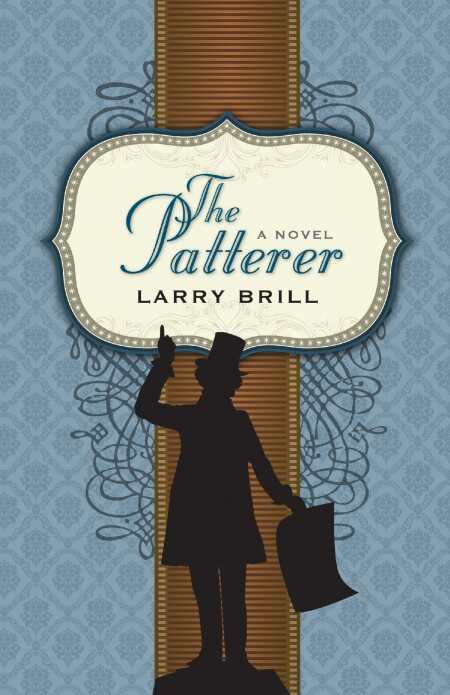The Patterer
An entertaining roast of “News Performance” in eighteenth-century London, this novel paints a vivid cultural melange of celebrity, misfortune, comedy, and moral bankruptcy.
Leeds Merriweather is a gifted patterer whose livelihood generates income that ranks just above poverty level. Part sidewalk performer, part orator and broadsheet salesman, he’s a wily man chasing the dream of owning his own printing press. After a conversation with Benjamin Franklin prompts the invention of “News Performance” in 1765 London, Leeds embraces the alternative medium. Larry Brill’s anachronistic tale mixes Georgian-era ribaldry, contemporary references, comedy, and a double-crossing liasion with provocative secondary themes of literacy, celebrity, and the public’s appetite for misfortune.
A former news anchor and author of the novel Live@Five, Brill draws from decades of experience to create a fictional news world rife with opportunism. Chapters on Leeds’s performances—replete with live advertisements—alternate with an account of how he became an outcast in his family. An additional thread involves his affair with a baronet’s wife, whose gossip provides zest for his shows and whose actions alter the course of Leeds’s life. All three stories converge in a clever manner, but the event that sparks the climax treads the line between historical appropriateness and modern sensitivities. It is the eighteenth-century criminalization of homosexuality that becomes a news item resulting in trouble, and it is employed for brash humor. Despite such moments, the author’s talent for painting scallywags enlivens the city. Amid the hustlers, Aloysius Periwinkle deserves special mention, both as the sidekick for Leeds and as a loyal character whose transformation from a wide-eyed young man to an emerging patterer offers a glimpse at the more positive results of Leeds’s influence.
Some popular culture references, from Fifty Shades of Grey to Six Degrees of Kevin Bacon, appear swiftly. Others jab at the nature of the news business and distract when they are overused, as when Leeds considers his competition: “I must admit in my one life to live I never took for granted that, as the world turns, we would be alone in this new form of news performance all the days of our lives. A guiding light? Maybe.” The most effective instances, including a riff on the shipwreck in Gilligan’s Island, weave into Leeds’s pattering as material.
On its surface, The Patterer is an entertaining roast of the televised news industry and its moral bankruptcy. More profoundly, the novel is an imaginative look at the power of continual forward movement. Leeds embodies the entrepreneurial spirit with memorable panache.
Reviewed by
Karen Rigby
Disclosure: This article is not an endorsement, but a review. The publisher of this book provided free copies of the book to have their book reviewed by a professional reviewer. No fee was paid by the publisher for this review. Foreword Reviews only recommends books that we love. Foreword Magazine, Inc. is disclosing this in accordance with the Federal Trade Commission’s 16 CFR, Part 255.

